Treatment, Care, and Accountability as Alternatives to Incarceration (ATI)
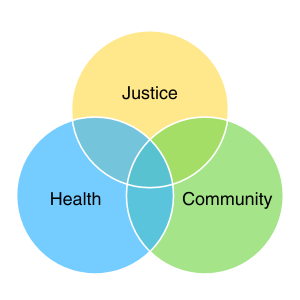
Alternatives to Incarceration (ATI) provide community-based treatment, care, and supervision for people with substance use problems who are involved with the justice system.
ATI initiatives work together with justice, health, and community services to make sure that the right amount of drug treatment, supervision, and accountability are provided for each person.
The goal is to keep the public safe and to help individuals recover from substance use disorders.
A Systems Change Strategy Across the Full Justice Continuum
ATI programs can help at each stage of the justice system, starting from the first encounter with law enforcement, through the courts, and after an individual is sentenced or convicted.
It is important to connect individuals with ATI treatment services as soon as possible, to break the cycle of substance use and crime. To have the greatest impact, it's also helpful to have various ATI initiatives available at different points in the justice system.
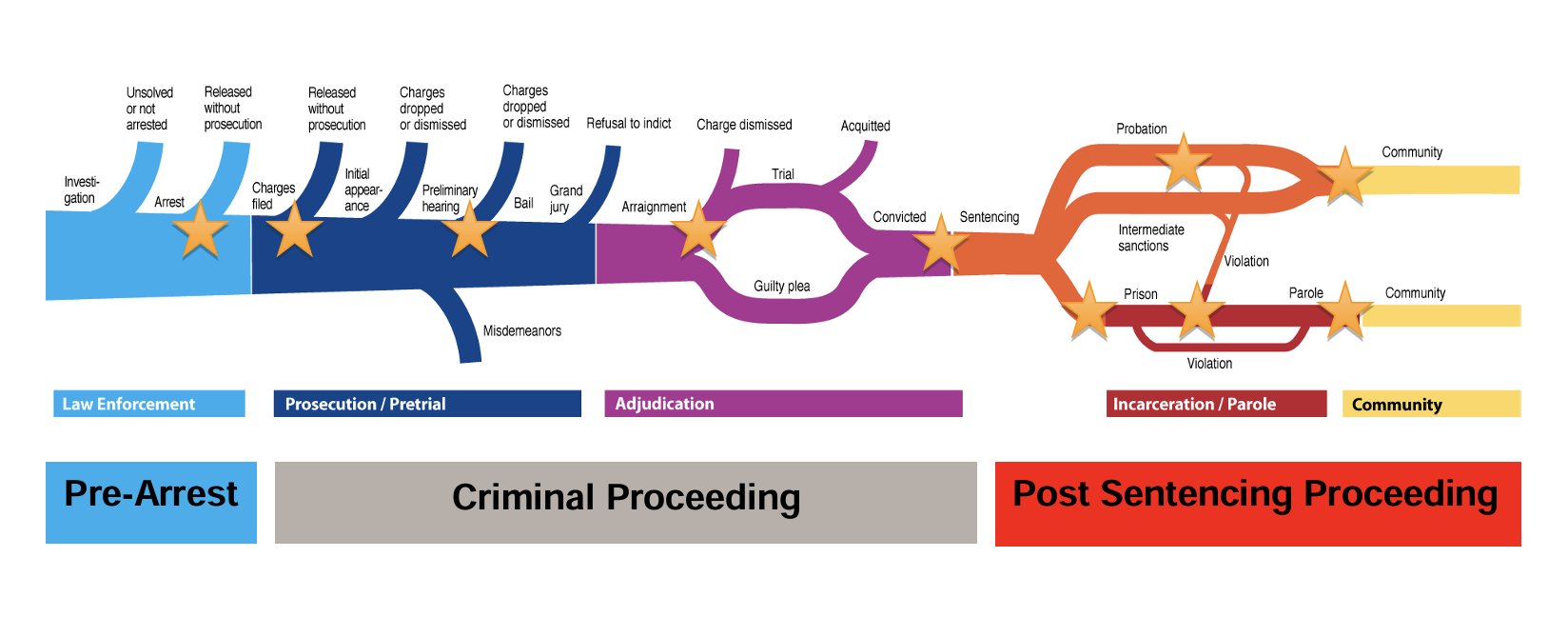
These initiatives can include:
- Pre-arrest deflection by law enforcement or other first responders
- Court-based diversion, including prosecutorial diversion and treatment courts
- Reentry from incarceration, which offers treatment and other services before and after release to help with community reintegration
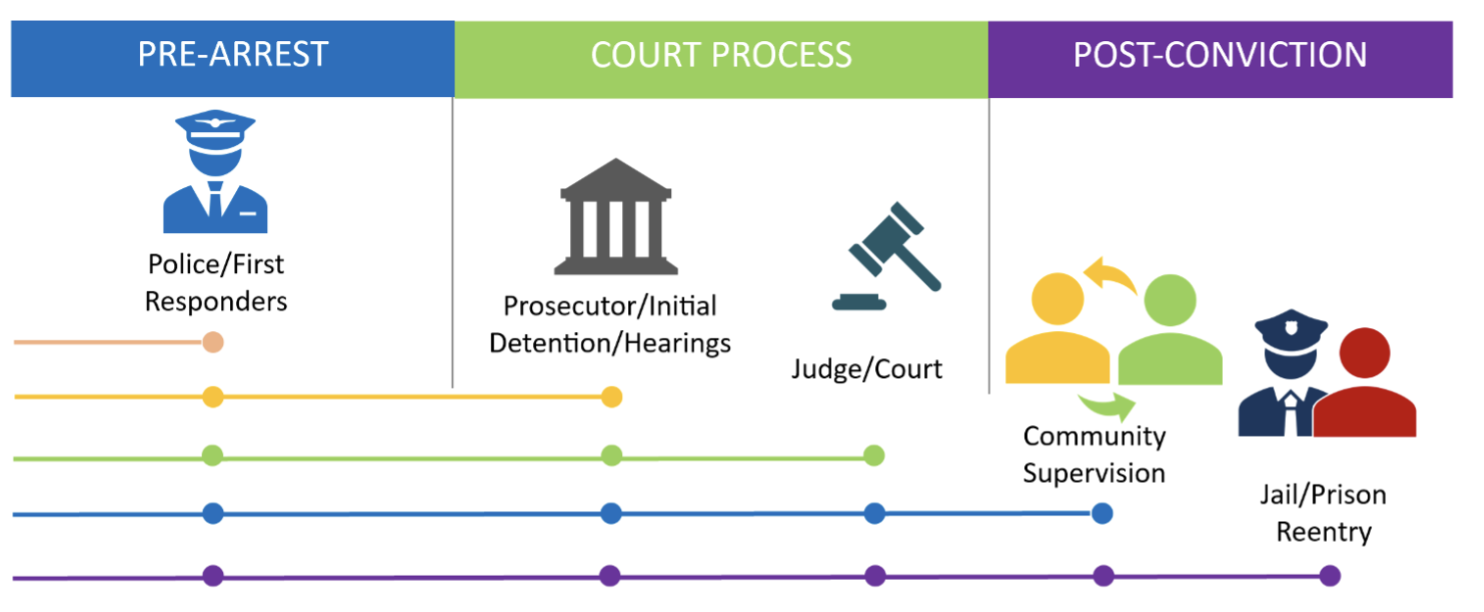
Approach to Treatment, Care, and Accountability Based on Individual Needs, Not Just Criminal Charges
Individuals encounter the justice system with a variety of behaviors, but criminal charges alone do not provide enough information to determine the best approach.
Additional considerations include clinical needs, risk factors that make it more likely for someone to encounter the justice system, and gaps in protective factors that promote successful reintegration into community and long-term recovery. These individual needs, along with pending charges, inform effective ATI strategies.
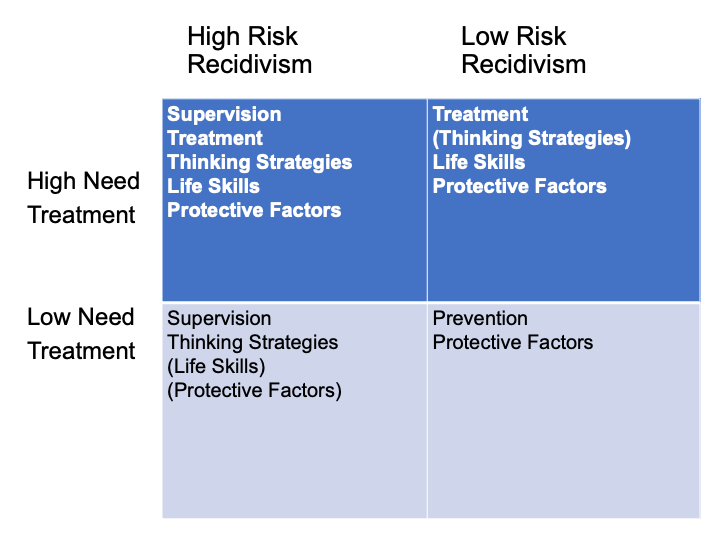
The Systems Involved
Each system plays a unique role in ATI collaborations. Justice professionals need to quickly identify potential participants through validated screening tools and refer individuals demonstrating clinical needs for a full clinical assessment from the treatment system.
Once individuals that meet applicable legal and clinical criteria voluntarily agree to participate in the ATI program, justice provides supervision and accountability, health ensures appropriate levels of care for the full range of clinical needs, and social services offer supportive services that promote community reintegration and recovery.
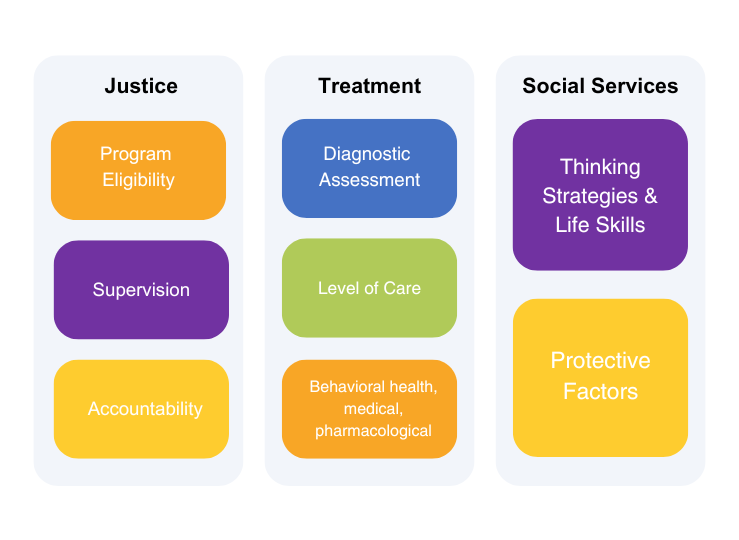
Case Care Management (CCM): Working With Different Actors
A system of case care management fully supports the success of ATI initiatives. Case care managers maintain close working relationships with all stakeholders and each of the participants to develop and complete individualized service.
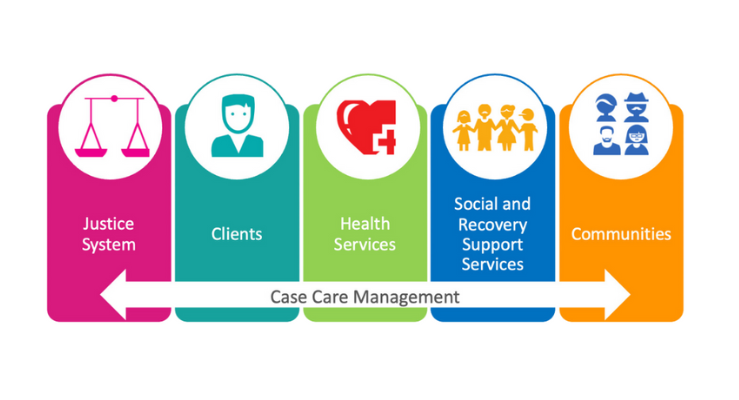
Individuals with substance use and mental health conditions are referred from justice system to Case Care Management (CCM) for the following:
- Identification, screening, assessment
- Recommendations and service planning
- Service referrals, linkage, and placement
- Monitoring, reporting, and service plan adjustments
- Work together through successful completion
A Case Care Manager provides ongoing education and advocacy to justice involved individual.
Case Care Management (CCM) Improves ATI Outcomes
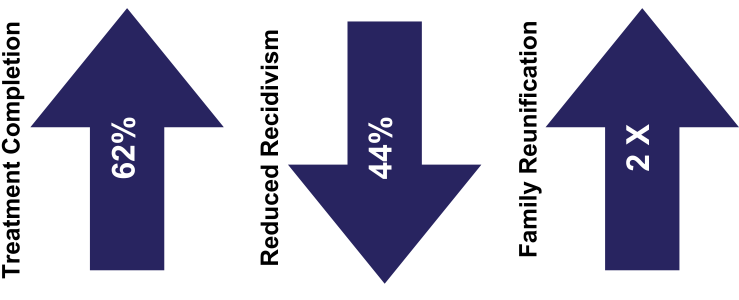
Case Care Management boosts the effectiveness of ATI. Benefits include:
- Treatment completion increasing by 62%
- Reducing by 44% re-incarceration within 7 years
- Making Family reunification twice as likely
